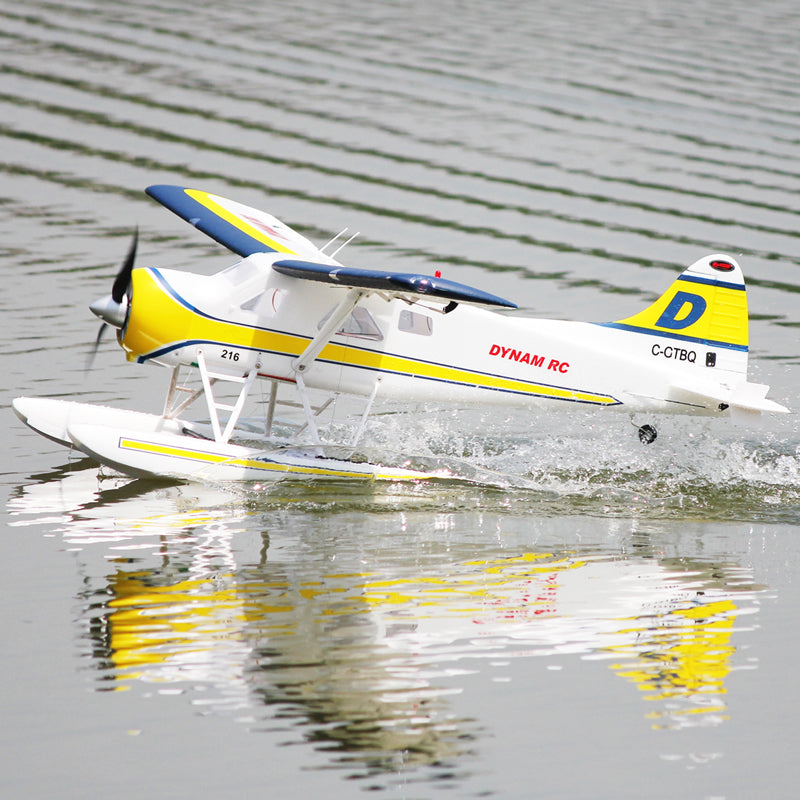How to Choose the Best RC Airplane for Beginners
6 Best Ways To Sell Gold News
December 27, 202410 Gold In Germany Secrets You Never Knew
December 27, 2024When you’re starting out in the world of RC aviation, choosing the right airplane can make all the difference. Not only does a good beginner plane help you build confidence, but it also ensures you have a smooth, enjoyable experience as you learn the basics of flight. As an experienced RC pilot, I’ve flown numerous models over the years, and Dynam aircraft have consistently proven to be an excellent choice for both beginners and experienced pilots alike. In this article, I’ll guide you through the key factors to consider when selecting an RC airplane and highlight why Dynam models like the DHC-2 Beaver are among the best options for new pilots.

Why Dynam Models Are Ideal for Beginners
Dynam offers a range of RC planes that cater to all skill levels, but they’re particularly well-known for their beginner-friendly models. Here’s why:
1. Affordability
Dynam aircraft are incredibly cost-effective, which is essential for newcomers who may not want to make a huge investment right away. Unlike many other brands, Dynam strikes a balance between price and quality, offering reliable planes that don’t break the bank.
2. Ease of Assembly
Dynam planes typically come partially assembled, which makes them ideal for beginners who may not have the technical know-how to build a plane from scratch. The assembly process is straightforward, and the planes are designed with ease of use in mind.
3. Durability
The material quality of Dynam rc beginner planes is fantastic. The planes are usually made from EPO foam, which is both lightweight and durable. This durability is crucial for beginners who are still learning how to handle the plane. In my experience, even after a few rough landings, a Dynam plane will hold up surprisingly well.
4. Availability of Spare Parts
With a large global user base, Dynam planes have widespread availability of spare parts. As a beginner, it’s important to know that if something goes wrong, replacement parts are easy to find and affordable.
5. Variety of Models
Whether you’re looking for a trainer, a scale warbird, or even a seaplane, Dynam has a wide variety of aircraft to choose from. Their planes also come in different sizes and power options, which makes it easier to find one that suits your flying style and needs.
Now, let’s dive into one of Dynam’s most popular beginner models—the Dynam DHC-2 Beaver.
The Dynam DHC-2 Beaver V2: A Perfect Beginner’s Seaplane
History of the DHC-2 Beaver
The De Havilland Canada DHC-2 Beaver is one of the most iconic aircraft in aviation history. Originally designed in the 1940s, it became famous for its ruggedness and ability to operate in harsh conditions. With a short takeoff and landing (STOL) capability, it’s been used for everything from bush flying to cargo transport in remote regions. Today, the DHC-2 remains a symbol of reliability and versatility.
Dynam’s rendition of the DHC-2 Beaver brings this iconic aircraft to the world of RC flying, offering beginners a chance to experience the joy of flying a scale replica of this legendary plane.
Key Features of the Dynam DHC-2 Beaver V2
- Powerful 4S Motor Setup The Dynam DHC-2 Beaver V2 comes with a robust 4S setup, providing plenty of power for both beginners and experienced pilots. This motor setup allows for steady climbs and stable flight, essential characteristics for those still mastering the art of RC flying.
- Detachable Wings One of the standout features of this plane is its detachable wings, making transport and storage incredibly easy. Whether you’re heading to the field or storing the plane at home, this design ensures that it takes up less space while still maintaining the integrity of its flight characteristics.
- Flaps for Enhanced Control The flaps on the DHC-2 Beaver V2 help reduce the landing speed, which makes it much easier to touch down smoothly, even if you’re still getting the hang of it. Beginners will especially appreciate how these flaps assist in making more controlled landings.
- Floats for Water Landings This model comes with floats, allowing you to take off and land on water. This unique feature adds an extra layer of versatility and fun to your flying experience, especially if you live near a lake or river.
- Stable and Easy to Control The DHC-2 Beaver’s design is inherently stable, which makes it a fantastic choice for newcomers. The wide wingspan and high wing configuration contribute to its smooth and predictable flight performance, even in mild wind conditions.
My Personal Experience with the Dynam DHC-2 Beaver V2
As someone who has flown numerous RC aircraft, I can tell you that the Dynam DHC-2 Beaver V2 has been a joy to pilot. I’ve taken it out on both land and water, and it performs excellently in both environments. The ease of control, especially when making landings, is something I’ve really appreciated as a pilot with years of experience. But for beginners, this feature can’t be overstated—being able to land with confidence is one of the most crucial aspects of learning to fly.
The float-equipped version adds a whole new dimension to the flying experience. Taking off from a calm lake or river feels incredibly satisfying. Plus, the plane handles the water with ease, which makes for a fun, versatile experience.
What Makes the DHC-2 Beaver a Great Choice for Beginners
1. Versatility
The Beaver’s capability to take off and land on water or land gives you a variety of flying locations to explore. You’re not restricted to just grassy fields; you can venture to lakes, ponds, or even your local beach.
2. Flight Stability
Thanks to the high-wing design, the DHC-2 Beaver V2 is extremely stable in the air. Beginners will find that it’s easy to fly in a straight line and perform basic maneuvers without the plane becoming unpredictable or difficult to control.
3. Durability
The EPO foam construction ensures that the plane can withstand the occasional rough landing or mishap. This resilience will give new pilots the confidence to practice and refine their skills without constantly worrying about damaging the plane.
FAQs: Choosing the Right Beginner RC Airplane
1. What’s the best beginner RC airplane for stability?
Planes like the Dynam DHC-2 Beaver are designed for beginners because of their inherent stability. The wide wingspan and high-wing configuration ensure steady flight, even in light winds.
2. Do I need to buy extra parts when I purchase an RC plane?
Dynam RC airplanes, including the DHC-2 Beaver, come ready to fly with everything you need included in the box. However, it’s always a good idea to have extra propellers, batteries, and a spare transmitter in case something breaks.
3. Can I fly a Dynam plane in moderate wind?
While the DHC-2 Beaver is stable and can handle light wind, it’s important to remember that strong winds can still challenge beginner pilots. I recommend flying in calm conditions until you get more experience.
4. How difficult is it to assemble a Dynam plane?
Dynam planes are designed to be easy to assemble, with clear instructions and minimal setup required. Even as a beginner, you’ll likely be able to get your plane in the air in under an hour.
5. How long will the battery last on a Dynam DHC-2 Beaver?
With a 4S battery, you can expect flight times of 15-20 minutes depending on your flying style. Always bring extra batteries with you to ensure you get plenty of air time.
Conclusion
Choosing the right RC airplane as a beginner doesn’t have to be complicated. Dynam’s DHC-2 Beaver V2, with its combination of affordability, stability, and versatility, is an excellent choice for anyone starting their RC flying journey. From its reliable power system to its durable construction, this model offers everything a beginner needs to build their skills and have fun doing it. If you’re ready to take to the skies, I highly recommend giving the DHC-2 Beaver a try—it’s a plane that will help you grow as a pilot while providing hours of enjoyable flying.


